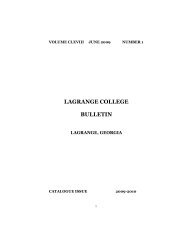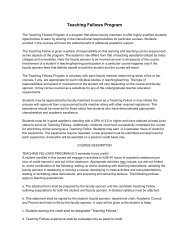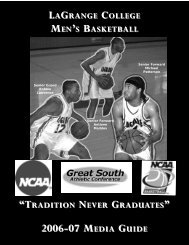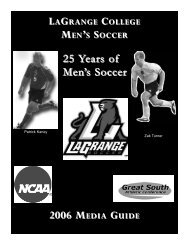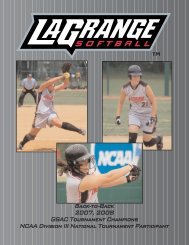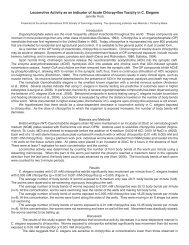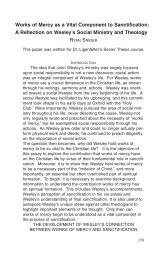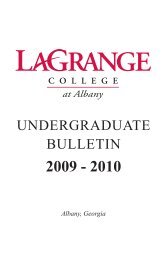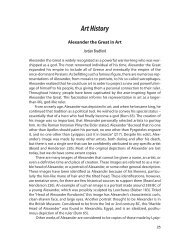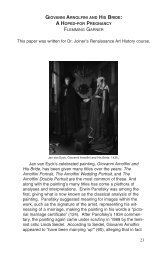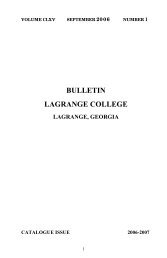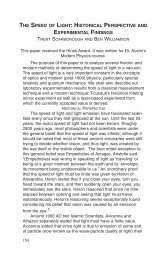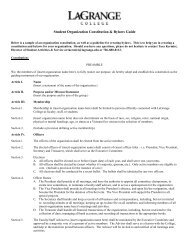undergraduate bulletin - LaGrange College
undergraduate bulletin - LaGrange College
undergraduate bulletin - LaGrange College
Create successful ePaper yourself
Turn your PDF publications into a flip-book with our unique Google optimized e-Paper software.
COURSE REPETITION<br />
At times, a student may wish to repeat a course in which a grade has already been earned. This is<br />
likely to be because a student:<br />
earned a grade of ―F‖ in a course;<br />
earned a grade of ―D‖ in a course, which is often considered unsatisfactory;<br />
earned a grade of ―C-‖ or better in a course.<br />
Students who have failed a course at <strong>LaGrange</strong> <strong>College</strong> are not allowed to take the course<br />
elsewhere. Thus, all courses in which a grade of ―F‖ is earned at <strong>LaGrange</strong> <strong>College</strong> must be<br />
repeated at <strong>LaGrange</strong> <strong>College</strong>.<br />
Students who have earned a grade of ―D‖ in a course, which may be considered unsatisfactory as<br />
defined by a student‘s major requirement, must have the approval of the department chair in the<br />
student‘s major in order to take the course elsewhere.<br />
A student is prohibited from repeating a course in which he has made a ―C-" or better (while<br />
enrolled at <strong>LaGrange</strong> <strong>College</strong> or any institution) without the approval of the Provost and the<br />
Provost‘s Council. Should a student wish to repeat a course in which a grade of ―C-‖ or above<br />
was awarded, the student may petition to repeat the course.<br />
A student may not remove from the transcript any grade earned at <strong>LaGrange</strong> <strong>College</strong> or<br />
elsewhere, even if the course is repeated.<br />
STUDENT APPEAL OF ACADEMIC POLICY<br />
Students may petition for exception to published academic policy. The Provost‘s Council<br />
reviews the petition.<br />
STUDENT RECORDS AND FERPA REGULATIONS<br />
The Family Educational Rights and Privacy Act (FERPA) (20 U.S.C. § 1232g; 34 CFR Part 99)<br />
is a Federal law that protects the privacy of student education records. The law applies to all<br />
schools that receive funds under an applicable program of the U.S. Department of Education.<br />
FERPA gives parents certain rights with respect to their children's education records. These<br />
rights transfer to the student when he or she reaches the age of 18 or attends a school beyond the<br />
high school level. Students to whom the rights have transferred are "eligible students."<br />
Parents or eligible students have the right to inspect and review the student's education records<br />
maintained by the school. Schools are not required to provide copies of records unless, for<br />
reasons such as great distance, it is impossible for parents or eligible students to review the<br />
records. Schools may charge a fee for copies.<br />
Parents or eligible students have the right to request that a school correct records which they<br />
believe to be inaccurate or misleading. If the school decides not to amend the record, the parent<br />
or eligible student then has the right to a formal hearing. After the hearing, if the school still<br />
decides not to amend the record, then the parent or eligible student has the right to place a<br />
67



